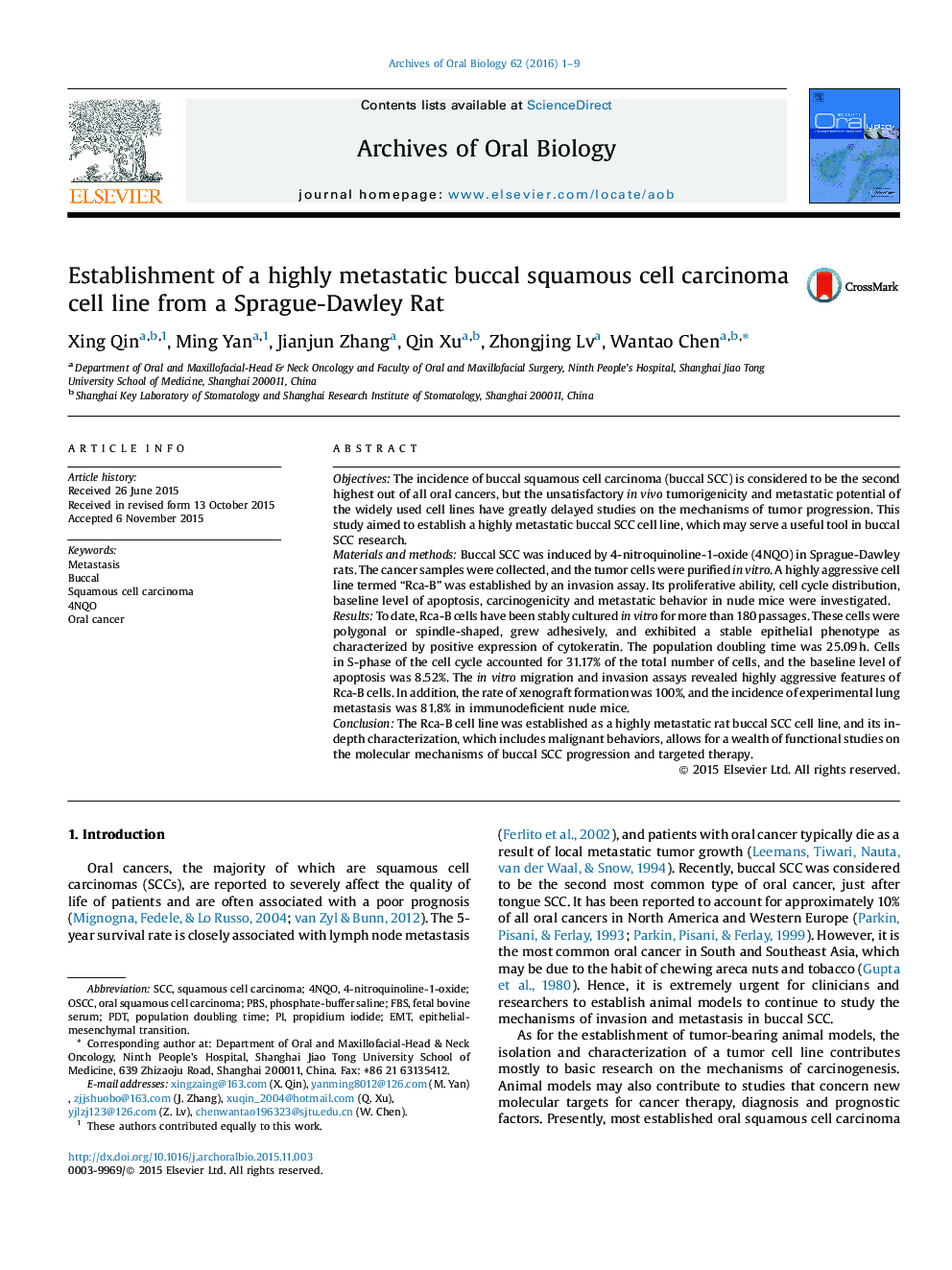| Article ID | Journal | Published Year | Pages | File Type |
|---|---|---|---|---|
| 3120699 | Archives of Oral Biology | 2016 | 9 Pages |
•We established a model of buccal squamous cell carcinoma in Sprague-Dawley Rat by 4-nitroquinoline-1-oxide added drinking water.•A cell line titled “Rca-B” was isolated from the tumor tissue successfully.•The in vivo and in vitro biological characteristics of Rca-B were well investigated and confirmed, which suggested a highly metastatic malignant feature of Rca-B.•The malignant behaviors of Rca-B would be valuable for investigating the molecular mechanisms of buccal SCC progression.
ObjectivesThe incidence of buccal squamous cell carcinoma (buccal SCC) is considered to be the second highest out of all oral cancers, but the unsatisfactory in vivo tumorigenicity and metastatic potential of the widely used cell lines have greatly delayed studies on the mechanisms of tumor progression. This study aimed to establish a highly metastatic buccal SCC cell line, which may serve a useful tool in buccal SCC research.Materials and methodsBuccal SCC was induced by 4-nitroquinoline-1-oxide (4NQO) in Sprague-Dawley rats. The cancer samples were collected, and the tumor cells were purified in vitro. A highly aggressive cell line termed “Rca-B” was established by an invasion assay. Its proliferative ability, cell cycle distribution, baseline level of apoptosis, carcinogenicity and metastatic behavior in nude mice were investigated.ResultsTo date, Rca-B cells have been stably cultured in vitro for more than 180 passages. These cells were polygonal or spindle-shaped, grew adhesively, and exhibited a stable epithelial phenotype as characterized by positive expression of cytokeratin. The population doubling time was 25.09 h. Cells in S-phase of the cell cycle accounted for 31.17% of the total number of cells, and the baseline level of apoptosis was 8.52%. The in vitro migration and invasion assays revealed highly aggressive features of Rca-B cells. In addition, the rate of xenograft formation was 100%, and the incidence of experimental lung metastasis was 81.8% in immunodeficient nude mice.ConclusionThe Rca-B cell line was established as a highly metastatic rat buccal SCC cell line, and its in-depth characterization, which includes malignant behaviors, allows for a wealth of functional studies on the molecular mechanisms of buccal SCC progression and targeted therapy.
